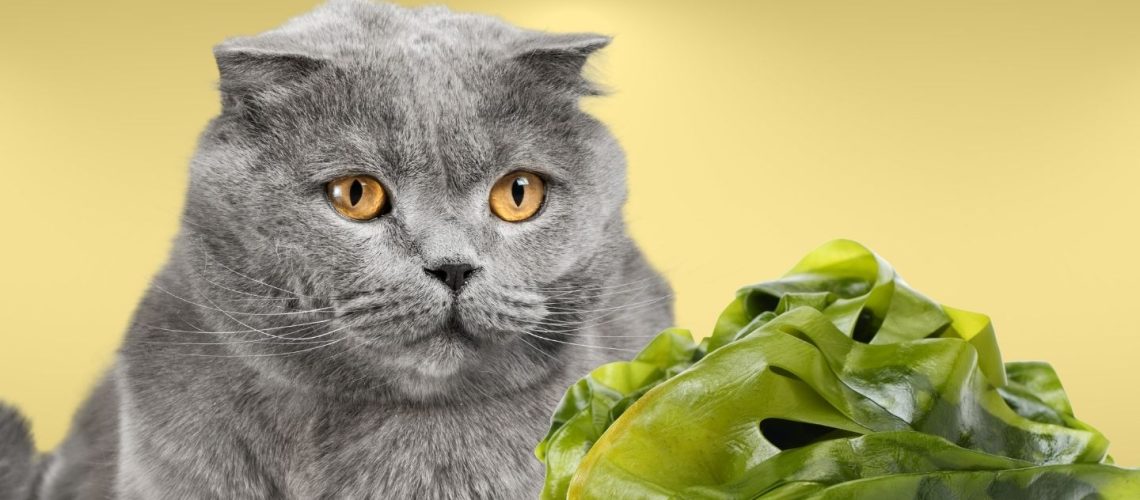The short answer is yes, cats can eat seaweed in small amounts as part of a balanced diet. However, it is important to feed seaweed to your cat in moderation, as part of a well-rounded diet, and to choose high-quality seaweed products that are safe for cats to consume.
Nutritional Benefits of Seaweed for Cats
Seaweed is a type of marine algae that is a rich source of vitamins, minerals, and other nutrients. It contains vitamins A, C, and E, as well as B vitamins, calcium, magnesium, and iron.
Antioxidant Properties
Seaweed also contains antioxidants, which can help support your cat's immune system and protect against free radicals that can damage cells.
Types of Seaweed Safe for Cats
There are many different types of seaweed, and not all of them are safe for cats to eat. The most commonly eaten seaweed by cats is nori, which is the type of seaweed used to make sushi rolls. Cats can also eat other types of edible seaweed, such as kelp, dulse, and wakame. It is important to only feed your cat seaweed that is specifically labeled as safe for cats to eat.
Choosing High-Quality Seaweed Products
When selecting seaweed products for your cat, make sure they are of high quality and free from any contaminants, such as heavy metals or harmful chemicals.
How to Feed Seaweed to Your Cat
Introducing Seaweed to Your Cat's Diet
When feeding seaweed to your cat, it is important to start with small amounts and gradually increase the amount over time. This will give your cat's digestive system time to adjust to the new food.
Monitoring Your Cat's Reaction
It is also important to monitor your cat's reaction to the seaweed and make sure they do not have any adverse reactions, such as vomiting or diarrhea.
Mixing Seaweed with Other Foods
You can mix seaweed with your cat's regular food or offer it as a treat. Make sure to break it into small pieces to avoid choking hazards.
Portion Size and Frequency
Determining the Right Amount for Your Cat
When it comes to portion size, it is important to feed seaweed to your cat in moderation. Cats do not need large amounts of seaweed in their diet, and a little goes a long way. A good rule of thumb is to feed your cat no more than a quarter of a teaspoon of seaweed per day, and to gradually increase the amount over time as your cat's digestive system adjusts.
Precautions and Potential Risks
Allergies and Sensitivities
Some cats may be allergic or sensitive to seaweed, so it is crucial to watch for signs of an allergic reaction, such as itching, swelling, or difficulty breathing.
Gastrointestinal Issues
Overfeeding seaweed can lead to gastrointestinal issues, such as diarrhea or vomiting. Make sure to start with small amounts and gradually increase the portion size.
Iodine Content and Thyroid Health
Seaweed is high in iodine, which can affect your cat's thyroid function. Consult your veterinarian before introducing seaweed into your cat's diet, especially if they have thyroid issues.
Contamination Concerns
Ensure the seaweed you use is of high quality and free of contaminants like heavy metals or harmful chemicals.
Consult Your Veterinarian
Discussing Seaweed as a Dietary Supplement
Before introducing seaweed into your cat's diet, consult your veterinarian to ensure it is a suitable addition and will not cause any harm.
Monitoring Your Cat's Health
Continue to monitor your cat's health and consult your veterinarian if any issues arise after adding seaweed to their diet.
In Conclusion
In conclusion, cats can safely eat seaweed as part of a balanced diet, provided it is fed in moderation and from high-quality sources. Seaweed is a nutritious food that can provide your cat with a variety of vitamins and minerals, and can be a healthy addition to your cat's diet. However, it is important to carefully monitor your cat's reaction to seaweed and to consult with your veterinarian before making any changes to your cat's diet.











